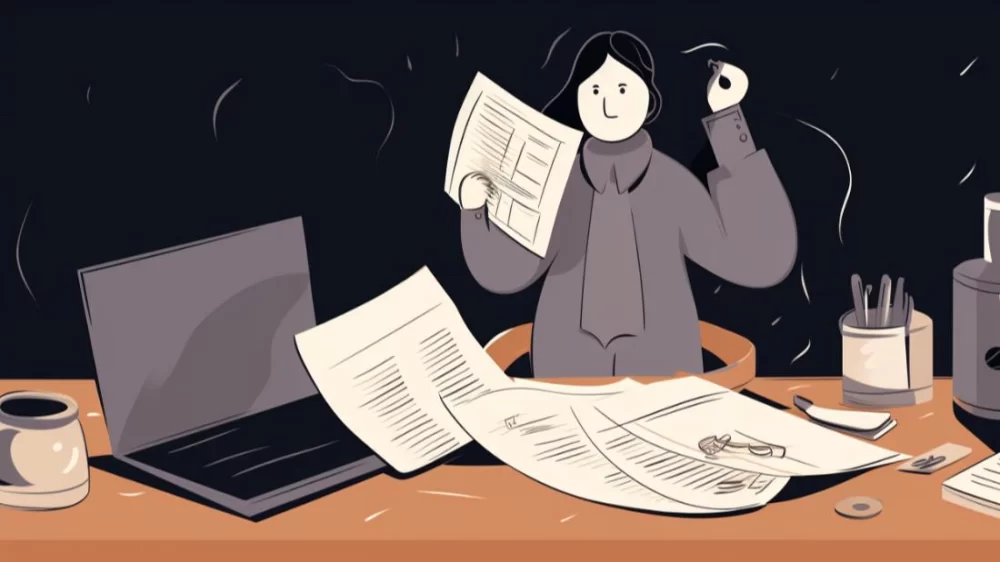
How to Legally Close Your Business in the USA: A Step-by-Step Guide
Running a business is challenging, and there comes a time when you might decide that it’s time to shut it down. Whether you’re dealing with financial losses, retirement, or simply pursuing a new venture, closing a business is a significant decision. However, doing so legally and properly is crucial to avoid any future legal complications. In this article, I’ll walk you through the necessary steps for closing a business in the USA. It’s a process that requires careful consideration, planning, and attention to detail.
1. Make the Decision to Close Your Business
The first step in closing your business is to make a clear decision. It’s a good idea to consult with your partners, if you have any, and evaluate all the factors that led to this decision. Whether it’s due to declining sales, high operational costs, or personal reasons, ensure that all stakeholders are on the same page. Closing a business can be an emotional and financial challenge, so understanding the full scope of your decision is essential.
Once you’ve decided, take the time to assess your business’s financial health. Are you able to pay off outstanding debts? Do you have any assets that need to be liquidated? These are the types of questions that should guide your next steps.
2. Notify Employees and Handle Employment Contracts
One of the most important steps in closing your business is informing your employees. It’s crucial to notify them well in advance, so they have time to prepare for the transition. Depending on the size of your business and the laws in your state, you may need to provide severance packages or pay for unused vacation time. It’s always best to follow the guidelines set forth by your state’s labor laws.
In addition to notifying employees, review any employment contracts or union agreements. Are there any clauses that require special attention, such as severance or benefits continuation? Don’t forget to issue final paychecks and ensure that all employees receive the compensation they’re entitled to. The last thing you want is to face lawsuits or disputes after you’ve closed your business.
3. Notify Creditors and Settle Debts
Before closing your business, it’s important to inform your creditors of your plans to shut down operations. This includes suppliers, lenders, and anyone you owe money to. Make a list of all outstanding debts and contact each creditor to explain your situation. You may be able to negotiate a settlement or payment plan, depending on your financial situation.
Settle your debts as best as you can before you close your doors. Failing to do so can result in legal action, including lawsuits or bankruptcy. If you have any business loans, make sure to communicate with your bank or lender to avoid any misunderstandings. Closing a business doesn’t absolve you of your financial obligations, so be sure to handle this step with care.
4. File the Necessary Legal Documents
Depending on the structure of your business, you’ll need to file the appropriate paperwork to dissolve your company legally. For example, if you run an LLC, you’ll need to file Articles of Dissolution with the state in which your business is registered. For a corporation, you’ll need to file a certificate of dissolution.
Some states may require additional documentation, such as a tax clearance certificate, which proves that you’ve paid all taxes owed. If your business has a DBA (doing business as) name, you may need to cancel or update it with the state as well. Be sure to check with your state’s Secretary of State office or consult an attorney to ensure that you complete the required paperwork.
5. Address Tax Obligations
When closing a business, taxes are one of the most complicated aspects. The IRS requires that you file a final tax return for your business, and this may include sales tax, payroll tax, and income tax. You’ll need to notify the IRS that you’re closing your business and request any necessary tax clearance certificates from state and local authorities.
If you have employees, you’ll also need to file final payroll tax returns and distribute W-2 forms to your workers. Keep in mind that any unpaid taxes could result in penalties, so it’s vital to ensure that all tax obligations are satisfied before closing the business.
6. Close Business Bank Accounts and Cancel Licenses
After handling the financial and legal aspects of closing your business, it’s time to handle the administrative details. Start by closing any business bank accounts. This will help you avoid any future charges or confusion. If you have any business credit cards, be sure to pay off the balances and close those accounts as well.
Next, cancel any business licenses or permits you no longer need. Whether it’s a sales tax permit, health department license, or zoning permit, make sure that you officially cancel these items with the appropriate local or state agencies. This will ensure that you’re no longer responsible for any fees or obligations related to your business.
7. Liquidate and Distribute Assets
If your business owns property or assets, it’s time to liquidate them. This may involve selling inventory, equipment, or real estate. Once you’ve sold your assets, you can distribute the proceeds according to the business’s ownership structure. If there are any remaining funds, they should be used to pay off any outstanding debts or obligations before being distributed among the owners.
It’s important to ensure that the liquidation process is fair and transparent. If you have business partners, it’s a good idea to document the distribution of assets to avoid any disputes later. Depending on your state’s laws and your business structure, you may need to hire a professional to oversee the liquidation process.
8. Notify Customers and Clients
Finally, let your customers and clients know that your business is closing. This can be done through email, social media, or direct mail. Be sure to thank them for their support and let them know about any final sales, refunds, or services that will be available before you close your doors.
It’s also a good idea to fulfill any outstanding orders or obligations to clients before closing your business. If you’re unable to do so, make sure to issue refunds or offer alternatives to maintain a positive relationship with your customers. A courteous and professional approach can help preserve your business’s reputation even after it’s gone.








